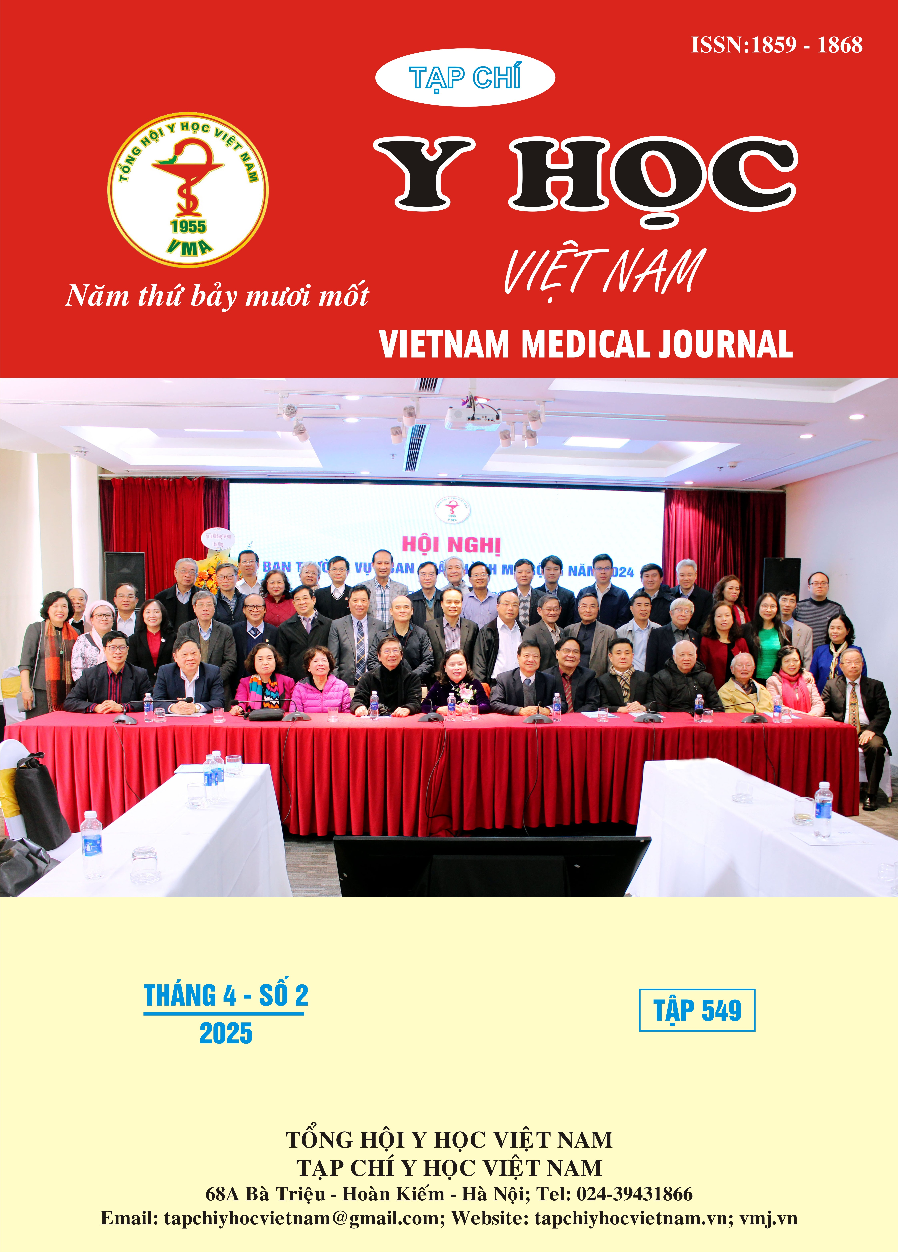RESULTS OF TREATMENT FOR ADOLESCENTS WITH HIV AT THE OUTPATIENT CLINIC OF THE CENTRAL CHILDREN'S HOSPITAL
Main Article Content
Abstract
Descriptive research and analysis of data from 222 adolescents infected with human immunodeficiency virus (HIV) receiving outpatient treatment at the National Children's Hospital, we found that using Using antiretroviral drugs for HIV helps children have good health. Children are 100% free of opportunistic infections. There are 200 children (90.1%) adolescents with viral load (Viral load - TLVR) below the detection threshold. The CD4 T cell index was normal or slightly decreased at 88.3%. The majority of children still use the first-line treatment regimen (187.4%). Children whose infection status has not been revealed accounts for a high proportion (31.0%); There are 98 children (44.1%) who fully understand the 3 routes of transmission, only 6 children (4.5%) know how to prevent exposure.
Article Details
Keywords
Nhiễm HIV, Nhiễm HIV ở trẻ vị thành niên, Adolescents living with HIV
References
2. Hodgson I, Ross J, Haamujompa C, Gitau-Mburu D. Living as an adolescent with HIV in Zambia – lived experiences, sexual health and reproductive needs. AIDS Care. 2012/10/01 2012;24(10): 1204-1210. doi:10.1080/ 09540121. 2012.658755
3. Trần Thị Ngọc. Đánh giá sự tuân thủ điều trị ARV và một số yếu tố liên quan đến tuân thủ điều trị ở trẻ em nhiễm HIV tại phòng khám ngoại trú Bệnh viện Nhi trung ương. Tạp chí y học Việt Nam. 2019;484(2)
4. Đoàn Ngọc Quỳnh (2016). Đánh giá rối loạn trầm cảm và lo âu ở trẻ em nhiễm HIV tại Bệnh viện Nhi trung ương. Đại học y Hà Nội; 2016.
5. Vụ Sức khỏe Bà mẹ - Trẻ em - Bộ Y tế. ĐỀ ÁN CHĂM SÓC SỨC KHỎE SINH SẢN, SỨC KHỎE TÌNH DỤC VỊ THÀNH NIÊN, THANH NIÊN GIAI ĐOẠN 2021 - 2025. Quyết định số 5914/QĐ-BYT ngày 29 tháng 12 năm 2021 của Bộ trưởng Bộ Y tế. 2021;
6. Menon A, Glazebrook C, Campain N, Ngoma M. Mental health and disclosure of HIV status in Zambian adolescents with HIV infection: implications for peer-support programs. Journal of acquired immune deficiency syndromes (1999). Nov 1 2007;46(3): 349-54. doi:10.1097/ QAI.0b013e3181565df0
7. Ndongmo TN, Ndongmo CB, Michelo C. Sexual and reproductive health knowledge and behavior among adolescents living with HIV in Zambia: a case study. The Pan African medical journal. 2017;26:71. doi:10.11604/pamj.2017. 26.71.11312
8. Audi C, Jahanpour O, Antelman G, et al. Facilitators and barriers to antiretroviral therapy adherence among HIV-positive adolescents living in Tanzania. BMC public health. Dec 13 2021; 21(1): 2274. doi:10.1186/s12889-021-12323-1
9. Ashaba S, Cooper-Vince CE, Vořechovská D, et al. Community beliefs, HIV stigma, and depression among adolescents living with HIV in rural Uganda. African Journal of AIDS Research. 2019/09/27 2019;18(3): 169-180. doi:10.2989/ 16085906.2019.1637912


